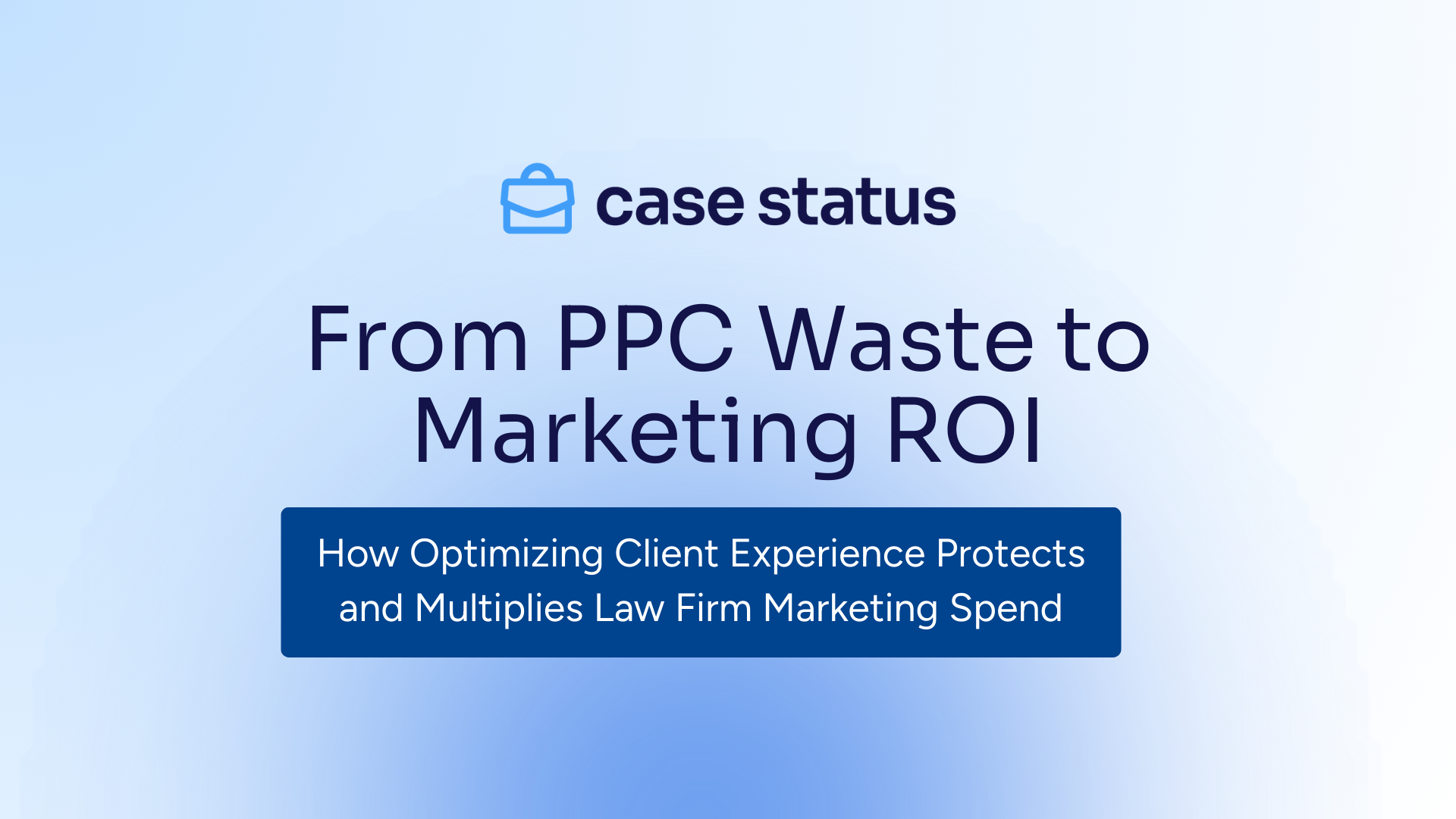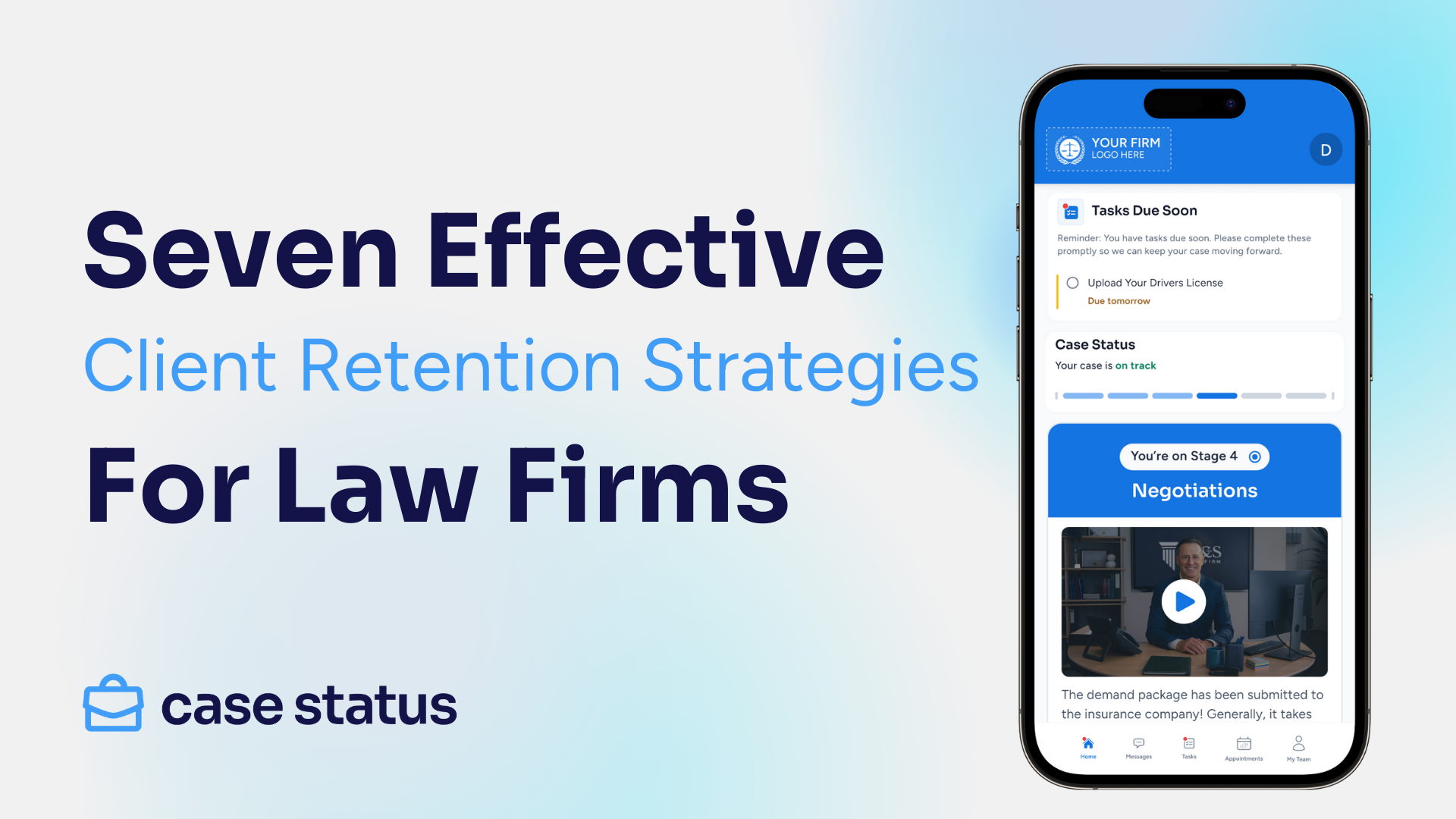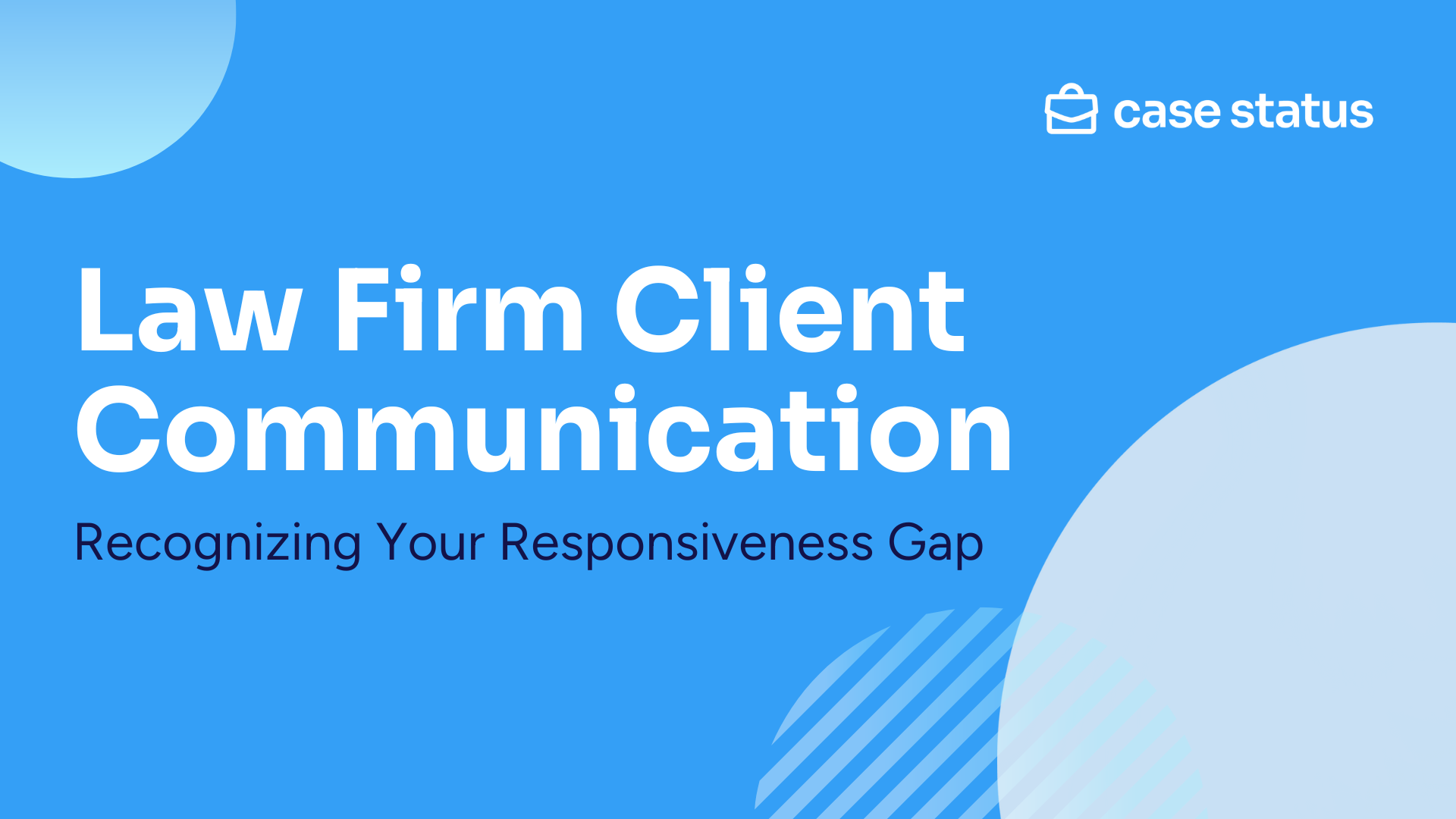
The world’s greatest law firms all have one thing in common: they know that managing legal clients with great lawyer-client relationships it vital.
Firms that prioritize their clients’ experience over case outcomes wind up producing greater results anyway. And even when things don’t turn out as they hoped, clients still walk away satisfied and leave positive reviews.
The lawyers behind these successful practices aren’t more talented than you. They just put the time and effort into developing deep relationships with their clients that ultimately become their firm’s greatest strength.
We’re going to dive deeper into what really makes lawyer-client relationships great by exploring seven secrets to successfully managing legal clients.

What Is Meant by Attorney-Client Relationship in Law?
The attorney-client relationship, or lawyer-client relationship, encompasses the unique connection between a legal professional and their client. No other relationship in the world requires such a delicate balance of confidentiality, vulnerability, and transparency.
You may be providing a service, but clients see you as much more than just a lawyer. They want you to be a guide during this time in their life, and they are turning to you for more than just answers. They’re seeking counsel, reassurance, and, in many cases, hope.
How Do You Manage Client Relationship Management?
Client relationship management skills are essential if you want to learn how to build a successful law firm. You will need to prioritize the lawyer-client relationship in your practice.
Generating legal clients through meaningful engagement not only enhances the ethical aspect of your work but also empowers you to create a profound legal legacy, positively impacting lives through your practice.
These are the seven secrets to successful relationships between lawyers and clients.
1. Use a CRM
A CRM doesn’t take out the work of communicating with clients, but it does make the process a lot easier. CRM stands for “Client Relationship Management,” and there are plenty of legal CRM platforms available to make your practice more efficient.
Every client matters, and a CRM helps to ensure your firm never overlooks a person’s needs. Integrated messaging and even automated responses can help expedite communication, allowing you focus more on meaningful engagement over repetitive, shallow interactions.
2. Implement a Legal Client App
An easy way to manage the lawyer-client relationship when you have a lot of cases is through a legal client app like Case Status. Communication should be as efficient as possible in a law firm, and that requires the ability to centralize all your messages in one place.
In addition, these apps offer resources to clients that make it easier for them to get information they need without contacting your firm. We’ve found that 93% of clients find what they’re looking for through our mobile client portal without the need to contact their firm.
3. Prioritize Prompt Responses
Firms need to be responsive, and that means prioritizing callbacks and email replies. Unfortunately, this is a huge challenge for firms, who could easily spend an entire day talking to clients without ever touching their cases.
Case Status makes it possible for you to respond with the tap of a button. You can even automatically request documents and information from your clients, saving you dozens of hours a week.
4. Personalize Your Messages
Personalizing messages to your clients can go a long way in strengthening your lawyer-client relationship. Using their name and mentioning specific details about their case instantly make your message feel more intentional rather than obligatory.
Additionally, you can schedule reminders with a legal client app to automate birthday messages, holiday greetings, and case anniversary messages to keep your firm at the top of clients’ minds.
5. Provide Education
Imagine someone becoming a client to your firm and thinking, “What next?” You can prevent that from happening by offering educational resources to clients at every stage of their case.
New clients can be sent a welcome kit that includes details about your firm, your experience, and answers to FAQs. Existing clients can have access to lawyer-written answers to common questions, as well as specific case details.
A blog is not only a great legal marketing tool; it also helps you deliver more value to your clients by continually offering insight into what your firm does and how your services can benefit them.
6. Use Active Listening
Among client relationship management skills every lawyer needs, active listening tops the list. Listening actively deepens understanding and trust between you and your clients.
Lawyers are used to listening to their clients recount their case, but many still fall short on actively listening and engaging during conversation.
Active listening can be a struggle for perpetually busy attorneys who operate from a strict need-to-know communication model.
But learning how to slow down, take time for your clients, and truly hear their experience makes all the difference in your relationship. This difference will shine through when you’re exploring feedback about your customer satisfaction rate.
7. Be Transparent
Honesty and transparency go hand in hand. Not only should you always deliver accurate facts, but you should also be completely open about a person’s case and their chances of success. If their desired outcome is unrealistic, let them know, and help readjust their expectations. Transparency creates trust and encourages more open communication from both sides.
What Are the Duties of Client Relationship Management?
There are certain lawyer-client relationship ethics to consider, such as maintaining confidentiality and always being diligent. The American Bar Association provides Model Rules of Professional Conduct for attorneys. These are the keys to successful client relationships.
Balance is important as a lawyer’s dedication to serving their clients should never interfere with the justice system. According to the ABA, a lawyer should be “a zealous advocate on behalf of a client” while still “assume that justice is being done.”
Maintaining ongoing communication with your clients is not only good for your practice—it’s a vital part of your job. With Case Status, you can streamline the process of communication and enjoy more meaningful, productive interactions with all of your clients.
With real-time translation, automated messages, bulk messaging, and more, Case Status is the best legal client app that integrates into all the major lawyer CRM platforms.
Meet with our team to learn more about Case Status and its potential benefits for your firm!



